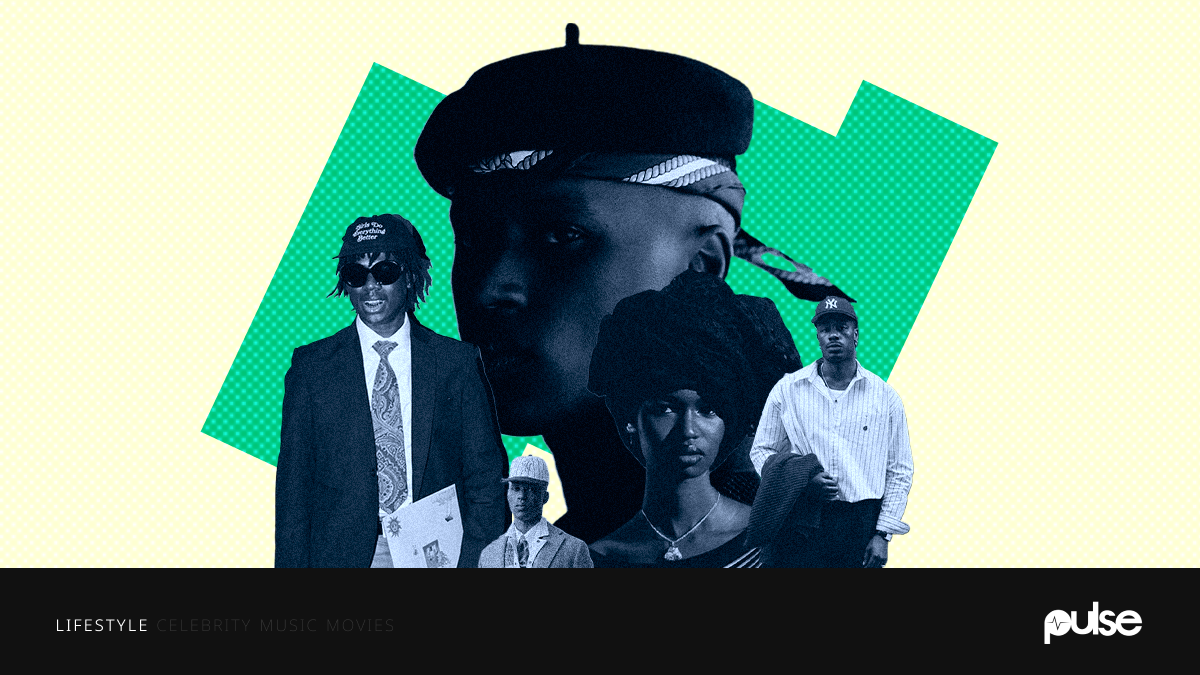
Fashion has always been a way to say something without speaking, but in 2025, it’s also about the aesthetic you choose to live by. Personal style has simultaneously become the clothes you wear, your vibe, philosophy, and often a community. Lagos to London, TikTok challenges, thrift-store finds, and Instagram feeds are shaping how people present themselves in the world.
Nigerians, in particular, are blending global trends with local references, drawing from history, street culture, and pop nostalgia to create something fresh. They are reviving Y2K, streetwear, and the cultural pride of Alte.
These five aesthetics are shaping wardrobes and identities right now.
Read Also: Tems Pulled Up Like an Angel in All White and Stole Nairobi’s Heart
1. Vintage
Old-school Nigerian fashion is having a major comeback, with garments and accessories from the 1970s to the 1990s inspiring younger generations. Wide lapels on men’s suits, brightly dyed adire fabrics, tailored wrapper-and-blouse sets, hand-beaded aso oke caps, and bold patterns on kaftans all carry an appeal.
Back then, many designers worked with natural fibres like cotton, silk, and linen, designed by tailors who fused local tradition with global influence. Today, vintage shopping is thriving in Nigeria through thrift markets, Instagram sellers, and boutiques.
For young people, these pieces are less about nostalgia and more about standing out. The vintage aesthetic is thriving because it allows individuality while honouring fashion’s past and the quality of fabric used in the past holds up better than what you often find in today’s fast fashion.
2. Resort/Beach Glam
Travel has become aspirational, and even when you can’t hop on a plane, dressing like you’re vacation-ready is the next best thing. The resort or beach glam aesthetic is about creating a polished, escapist look that fits into Lagos pool parties, Lekki rooftops, and getaways alike.
Swimsuits, bra tops paired with jeans, sheer maxi dresses, and woven handbags define the vibe. Accessories matter just as much, including oversized sunglasses, wide-brim hats, and strappy sandals. Unlike casual beachwear, this look is intentional and designed to be noticed.
Nigerian designers have tapped into this space, creating swimwear lines that combine functionality with style, while thrift stores also supply affordable options for those building their resort wardrobes.
Read Also: Temi Otedola Shines in All Black at Le Défilé L’Oréal Paris Runway
3. Y2K
If you go on social media or walk across any university campus, you’ll notice that Y2K fashion is everywhere. Low-rise jeans, metallic handbags, cropped baby tees, and butterfly accessories are back like it’s the early 2000s. What once felt outdated is suddenly fresh, thanks to Gen Z pulling from their childhood memories or, in many cases, discovering the era for the first time.
It’s about self-expression and reclaiming a period once dismissed as tacky. In Nigeria, Y2K shows up in thrift markets filled with shimmery tops and denim minis, styled with braids, bold lip gloss, and chunky sneakers. Influencers and musicians have embraced the look, blending it with African-inspired pieces.
4. Streetwear
Nigerian streetwear is undergoing a renaissance, evolving beyond just baggy clothes and sneakers. Oversized tees, cargo pants, bucket hats, and branded sneakers form the basics, but what makes Nigerian streetwear unique is how it blends global influences with local creativity.
A readily available example is Lagos skate culture, hip-hop and Afrobeats; young designers and collectives are building a style that is instantly recognisable. Brands like Severe Nature and Street Souk are reshaping what streetwear means in Africa, making it aspirational yet accessible.
Streetwear also borrows elements from other aesthetics, including Y2K accessories, creating a fluid and versatile look. For many young Nigerians, it is less about looking polished and more about identity, rebellion, and pride. Streetwear has become the uniform of a generation that wants to be seen and heard on its own terms.
5. Alte
Alte began as an underground subculture tied to experimental music and DIY fashion, but today it has become a full-fledged cultural force. Driven by young Nigerians, artists, photographers, stylists, and models, Alte is more about dressing differently and reimagining what it means to belong. Before ‘Alte’ had a name, Denrele Edun was already pushing boundaries with platform boots and bold makeup.
The term itself gained popularity in the 2010s, as artists began to break away from the mainstream Afrobeats genre. They blended genres such as neo-soul, psychedelic pop, and trap, and their looks reflected that fusion: thrifted outfits, experimental hair, and VHS-style visuals. Alte challenges mainstream fashion’s obsession with polish and perfection, instead embracing imperfection, individuality, and authenticity. For many, it’s less about trend and more about freedom.
Personal style today is inseparable from the aesthetics shaping culture. It could be through the nostalgia of vintage and Y2K, the statement of streetwear, the fantasy of resort glam, or the rebellion of Alte; these movements are redefining what it means to dress in 2025.
What unites them is a desire for self-expression, clothing as a language, as an identity, and as an escape. Trends will shift, but the aesthetics shaping fashion now are proof that style will always reflect the times and the communities that create it.
